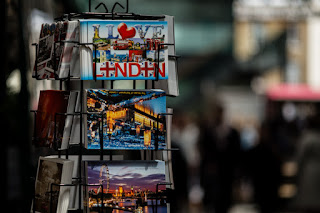This lens can be had for very little money on eBay. That was where I picked up this lens complete
with original screw on hood. Using a M42
to EOS adapter, I tested this lens on a Canon EOS 6D and EOS 650D. On the 650D, the angle of view is similar to 216mm. A 216mm f3.5 lens sounds attractive.
First of all, lets’ talk about the lens itself. It has an aperture ring and is manual focus
only. It is all metal construction and
is well built. The focus ring is smooth
with plenty of rotation required between infinity and minimum focus
distance. The long focus movement is a
useful feature to aid focus accuracy. I
did not find it difficult to focusing in good light if the subject is not
moving. If the subject is moving, that
is totally different experience. This
lens has an Auto or Manual switch near the base. This refers to the aperture control. In Auto, the pin at the back of the lens is
pressed and the aperture ring stops down.
When using an adapter, it can only be used in Manual mode when you
manually change the aperture. It does
mean the view finder gets darker if you stop down. So, how does this lens do on a modern digital SLR? Quite well is my answer. For the cost it is amazing if you’re happy to
focus manually. You can achieve quite
blur background with this lens. Here are
a few photos taken with my EOS 650D at f3.5.
The bokeh blur is quite respectable and a lot better than any kit lens
can. Here are a few photos taken with the
lens wide open at f3.5.
 |
| f3.5 with Canon EOS 650D |
 |
| f3.5 with Canon EOS 650D |
 |
| f3.5 with Canon EOS 650D |
This lens is reasonable good in resisting flare. I shot the image below at f3.5 into the tree
with the sun on the corner. It does not
do too badly. On the same image, you can
also see the level of chromatic aberration.
It is an extremely high contrast situation and it shows. This is likely to be as bad as it can
be. You will need to shoot raw and post process
if you want to avoid this.
 |
| Flare resistance not too bad |
 |
| Not too much chromatic aberration for a high contrast situation |
One thing I’ve noticed is when stopped down, the camera over
expose the same scene. Here is an
example of what I mean. The following
three images were taken at f3.5, f5.6 and f8.
The metering mode was centre weighted.
The scene is over exposed progressively worse from f3.5 to f8. I did not try different metering mode, but it
may be important to you if you shoot jpeg and will need to dial in exposure
compensation if you stop down. For me,
it will not be a big deal as I will most likely to shoot wide open with this
lens all the time.
 |
| f3.5 Canon EOS 650D |
 |
| f5.6 Canon EOS 650D |
 |
| f8 Canon EOS 650D |
As a portrait lens it does quite well. The following photo were taken with Canon EOS 6D, a full frame camera.
 |
| f3.5 with Canon EOS 6D |
 |
| f3.5 with Canon EOS 6D |
 |
| f3.5 with Canon EOS 6D |
Here are a few more photos taken on a bright sunny day in The City of London. All taken with Canon EOS 6D. I shot as much as possible at f3.5 unless it was too bright, but I need not keep records of what aperture I shot at.
In summary it is a good lens. It surpassed my expectation, if you don't mind manual focus. 135mm on a full frame camera is a great focal length for portraits. There is very little distortion and shallow depth of field can be achieved with smooth bokeh. Sharpness will not be up to the standard of modern lens but in a lot of cases, composition and content are more important than sharpness. Sharpness on its own can be over rated.
























No comments:
Post a Comment